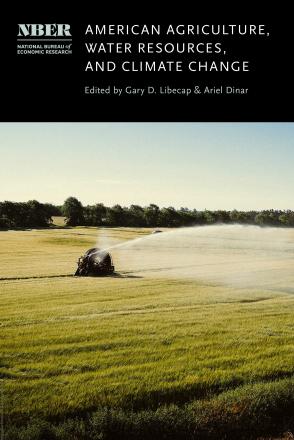Estimating the Demand for In Situ Groundwater for Climate Resilience: The Case of the Mississippi River Alluvial Aquifer in Arkansas
Published Date
Copyright 2024
ISBN 9780226830612

A drier and hotter climate diminishes the natural recharge of underground aquifers, which leads to a greater decline in the water table, lower agricultural profits, and reduced property values. The empirical magnitude of the climate change effect on land and groundwater values is what we measure in this paper. Eastern Arkansas overlays the Mississippi River Alluvial Aquifer, and we use the hedonic framework in this region to study how land prices and the agricultural demand for groundwater responds to climatic change. An inch decrease in expected rainfall during the growing season due to climate change decreases the per acre value of irrigated farmland with an average 120 feet saturated thickness by $170 to $180.
-
-
Copy CitationKent F. Kovacs and Shelby Rider, American Agriculture, Water Resources, and Climate Change (University of Chicago Press, 2022), chap. 11, https://www.nber.org/books-and-chapters/american-agriculture-water-resources-and-climate-change/estimating-demand-situ-groundwater-climate-resilience-case-mississippi-river-alluvial-aquifer.Download Citation


